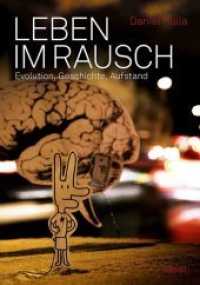- ホーム
- > 洋書
- > 英文書
- > History / World
Full Description
After Nicaragua achieved independence from Spain in 1821, it suffered a series of conflicts culminating in the two-year National War. When that war ended in 1857, Nicaragua was in ruins. The Everyday Nation-State explores what followed: the intersection of nation-state formation and everyday life in nineteenth-century Nicaragua. Rather than focus on the "invented traditions" of anthems, marches, and memorials that convey and reproduce an established sense of national identity and belonging, this work analyzes how such feelings emerged in the struggles of local communities over political authority, identity, and legitimacy. Based on extensive research of court cases, land registries, census materials, correspondence, government publications, and newspapers, The Everyday Nation-State connects the local with the national, prizing the narratives of commoners, while placing them in the larger regional and historical context, and challenging the way we approach the study of the nation-state. Justin Wolfe's exploration of quotidian social life and politics in nineteenth-century Nicaragua reveals how the diversities of economy, ethnicity, and geography engendered multiple experiences of nation. In turn, these experiences invigorated a new Nicaraguan citizenry as it fragmented local community power and autonomy in the face of a nascent modern state. This local perspective also provides a key to understanding the rise of twentieth-century figures such as revolutionary Augusto C. Sandino and dictator Anastasio Somoza.
Contents
List of Illustrations
Acknowledgments
Introduction
1. Brothers and Others: Elite Conceptions of Nation and State
2. Death and Taxes: Building the National State
3. The Wealth of the Country: Land, Community, and Ethnicity
4. The Work of Their Hands: Labor, Community, and Ethnicity
5. Customs of the Nicaraguan Family: Ethnic Conflict and National Identity
Conclusion
Notes
Bibliography
Index








